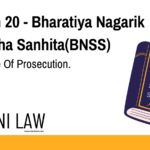Section 437 CrPC: Bail in Non-Bailable Offences – Explained
Section 437 of the Code of Criminal Procedure (CrPC) deals with the grant of bail in cases where the offense is non-bailable. It empowers the court to grant bail even in such cases, subject to certain conditions and considerations.
Explanation:
In India, offenses are categorized as bailable and non-bailable. While bail is a matter of right in bailable offenses, it is discretionary in non-bailable offenses. This means the court has the power to grant or deny bail in non-bailable offenses based on its assessment of the circumstances.
Section 437 empowers the court to grant bail in non-bailable offenses if the court is satisfied that:
- There are reasonable grounds to believe that the accused is not guilty of the offense.
- The accused is not likely to abscond or tamper with evidence.
- The accused is not likely to commit any offense while on bail.
Illustration:
Suppose a person is accused of murder, a non-bailable offense. If the court finds that there is strong evidence suggesting the accused’s innocence, or if the court believes the accused is unlikely to flee or interfere with the investigation, the court may grant bail under Section 437 CrPC.
Common Questions and Answers:
Q: Can bail be denied under Section 437?
A: Yes, the court can deny bail if it believes that the accused is likely to abscond, tamper with evidence, or commit another offense.
Q: What are the conditions that can be imposed on bail under Section 437?
A: The court can impose various conditions, such as:
- Depositing a sum of money.
- Surrendering passport.
- Reporting to the police station periodically.
- Avoiding contact with witnesses.
Q: Who can apply for bail under Section 437?
A: The accused person or their legal representative can apply for bail under Section 437.
Q: Can bail be granted in cases of serious offenses like terrorism?
A: In cases of serious offenses, the court may consider the gravity of the offense and the potential threat to public safety before granting bail under Section 437.






